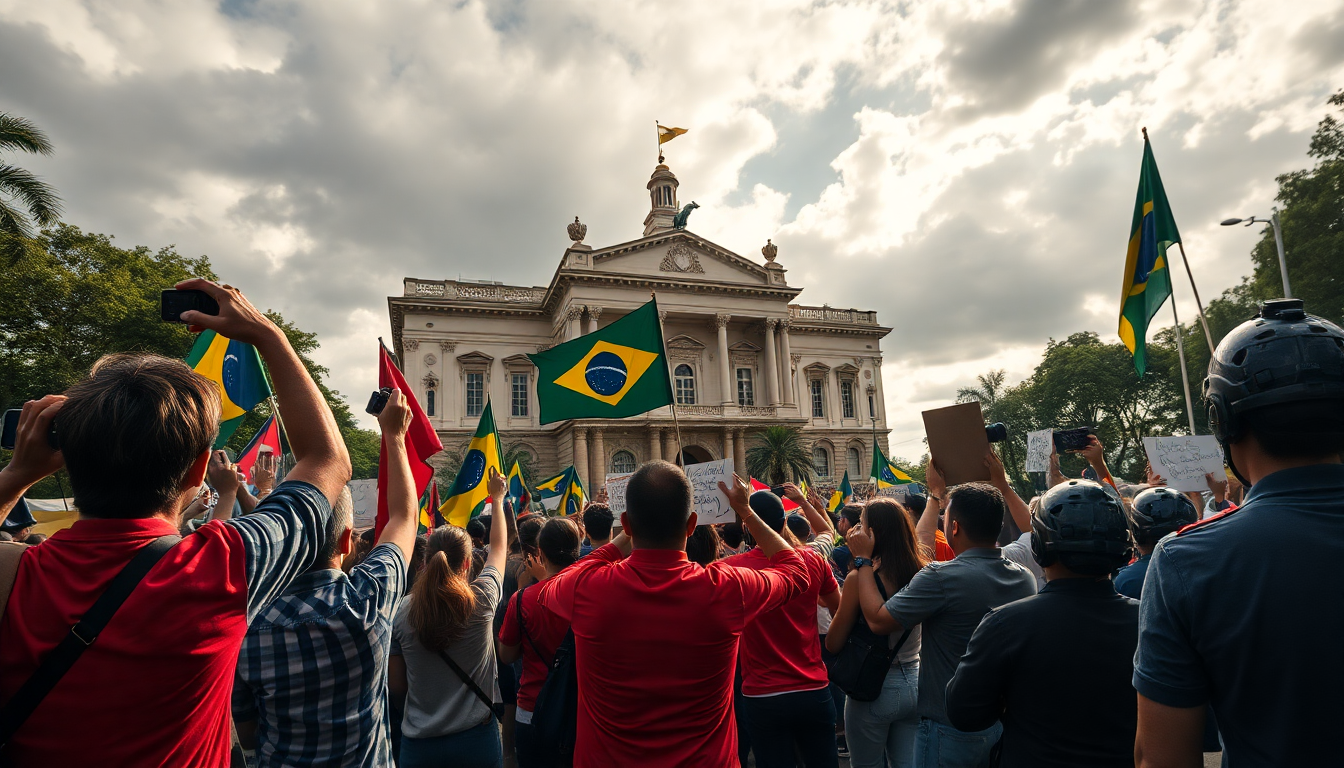Table of Contents
Brazil’s political scene has become quite a rollercoaster lately, with accusations flying between major players. Recently, U.S. Secretary of State Marco Rubio has turned the spotlight on the Brazilian judiciary, particularly honing in on Justice Alexandre de Moraes from the Supreme Federal Court.
His comments suggest a judicial system that he views as oppressive, raising alarms about how this impacts not just the rights of Brazilian citizens but also their international relations, especially with the United States. Have you ever wondered how a country’s legal framework can influence its global standing?
How the U.S. is Reacting to Brazil’s Judicial Moves
In a surprising twist, the U.S. government has decided to impose travel visa restrictions on Brazilian judicial officials and their families. Rubio described this measure as a response to what he called a “political witch-hunt” against former President Jair Bolsonaro.
This action underscores just how serious the situation is, showing that the U.S. is keeping a close eye on Brazil’s judicial actions and their potential impact on human rights. The revocation of visas for Justice Moraes and his colleagues marks a significant rise in diplomatic tensions.
What does this mean for the future of U.S.-Brazil relations?
Reports indicate that the U.S. has extended this visa revocation to seven additional justices of the Brazilian Supreme Court. This raises some serious questions about the independence of Brazil’s judiciary and its ability to function without political interference.
If this is true, only a handful of justices remain unaffected, casting a shadow over the already politically charged atmosphere within Brazil’s legal system.
Bolsonaro’s Legal Battles: What’s at Stake?
Former President Bolsonaro is facing some tough legal challenges, particularly as he stands accused of attempting a coup.
The Brazilian Supreme Court’s recent decisions, which include prohibiting him from contacting foreign officials and using social media, clearly show the court’s intent to prevent any interference in ongoing legal matters. These developments could have significant ramifications, not just for Bolsonaro himself but for the very fabric of Brazil’s democracy. Have you ever thought about how legal battles can reshape a political landscape?
As Bolsonaro navigates these turbulent waters, he’s publicly criticized Justice Moraes, labeling him a “dictator” and condemning the court’s actions as cowardly. This kind of rhetoric reflects a deeper struggle for power within Brazil, as Bolsonaro tries to rally his supporters amid increasing pressure from the judiciary. The stakes are high—his ongoing trial could result in severe penalties, complicating both his political future and that of his allies.
What This Means for International Relations and the Future
The situation in Brazil is creating ripples in international relations, particularly between Brazil and the U.S. Rubio’s remarks hint that the U.S. may adopt a more hands-on approach in observing Brazil’s political developments. Considering Trump’s previous support for Bolsonaro and his recent criticisms of the Brazilian judiciary, the relationship between the two countries is clearly complex and could influence their future interactions. What do you think this means for everyday Brazilians?
Furthermore, the potential for economic fallout, like the U.S. imposing tariffs on Brazilian goods, adds another layer of complication to this already tense scenario. Brazilian President Lula has vowed to respond to any unilateral economic measures, which could further escalate tensions and impact trade relations and economic stability in the region. Are we witnessing the beginning of a significant shift in Brazil’s global economic partnerships?
As the political scene continues to evolve, how domestic and international factors interplay will be crucial in shaping Brazil’s future. Observers will need to keep a close watch on how the judiciary, political parties, and international allies navigate this tricky period, as the outcomes could have lasting effects on Brazil’s democracy and its role on the world stage. What changes do you think we might see in the coming months?





